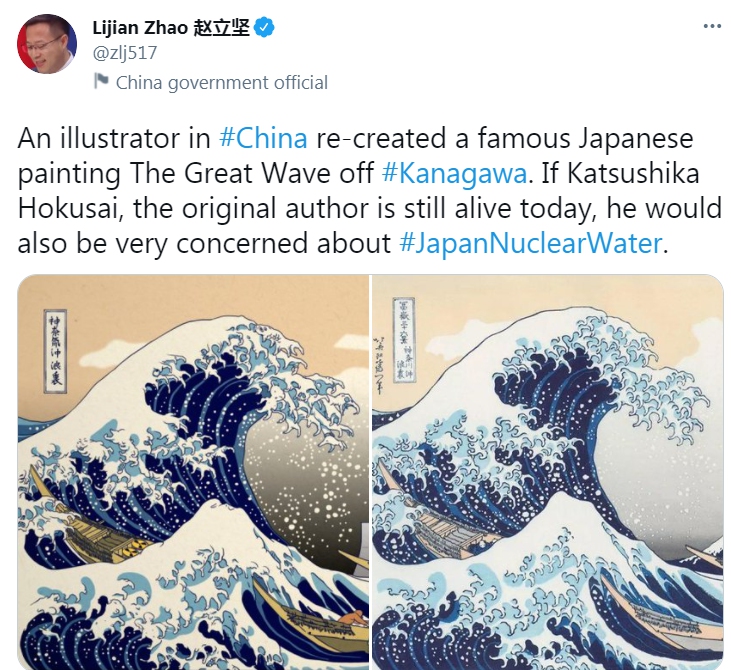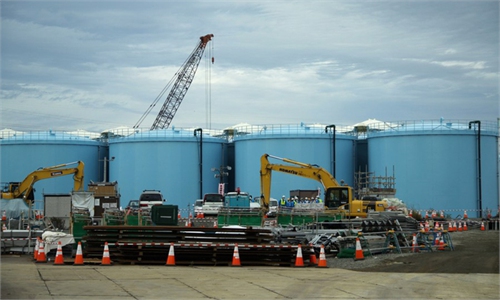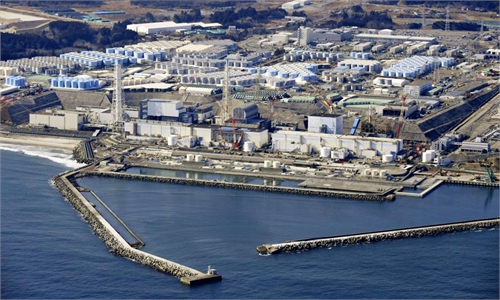Chinese FM spokesperson pins critical tweet atop in response to Japanese FM’s comment

Photo: website
Diplomats from China and Japan have lately become embroiled in a spat over a tweet about the iconic Japanese painting The Great Wave off Kanagawa, which has been adapted by Chinese illustrators as a satirical symbol on social media in a way to protest against Japan's nuclear wastewater dumping decision.
Chinese Foreign Ministry spokesperson Zhao Lijian said on Wednesday that the adapted painting reflects legitimate public opinion and the voice of justice, and it is the Japanese government that needs to reverse its wrong decision of dumping Fukushima nuclear-contaminated wastewater and apologize.
Zhao’s remarks were in response to Japanese foreign minister who opposed Zhao’s Twitter post of backing Chinese illustrators who recreated the Japanese painting.
In recent weeks, Chinese social media platforms have generated a wave of recreations of one of the best-known Japanese artworks, The Great Wave off Kanagawa, to satirize the Japanese government's irresponsible decision of dumping Fukushima nuclear wastewater into the Pacific.
One of the adaptations named The Great Wave off Kanagawa Tritium, has gained the most recognition, in which the white spray at the crest of the waves was recreated as deformed human fingers, twisted babies and mutated marine creatures struggling in the sea. Japanese bureaucrats in ties are bowing and apologizing for their wrong decision.
Zhao posted this work on Twitter along with words “If Katsushika Hokusai, the original creator of a famous Japanese painting The Great Wave off Kanagawa, were still alive today, he would also be very concerned about Japan's nuclear-contaminated water.”
The tweet drew strong opposition from the Japanese Foreign Minister Toshimitsu Motegi on Tuesday, who said Japan has expressed strong opposition through diplomatic channels and urged Zhao to delete his tweet.
Zhao then pinned the post at the top of his Twitter page, replacing a previous one that featured an illustration of Australian atrocities in Afghanistan by Chinese artist Wuheqilin.
“Japan made a wrong decision first and then we protested against it. Why do you bother others talking about it when you did things wrong?” Zhao said at a routine press conference on Wednesday in response to a question.
“The world has been protesting Japan’s decision for a long time. Some Japanese officials have been acting deaf and dumb. Why are they so angry over an illustration? They should listen to the outcry of people around the world over their decision to dump nuclear-contaminated water. The Japanese side should recognize its responsibility, fulfill its international obligations and cancel its wrong decision,” Zhao said.
The original work by Hokusai is well-known in China, and the Chinese people have a good understanding of Japanese culture. This adaptation by a Chinese illustrator conveys the concerns and dissatisfactions of Chinese people over Japan’s unilateral dumping decision, Zhao said, adding that the strong concerns come not only from China but also the international community, including Japanese nationals.
Global Times



